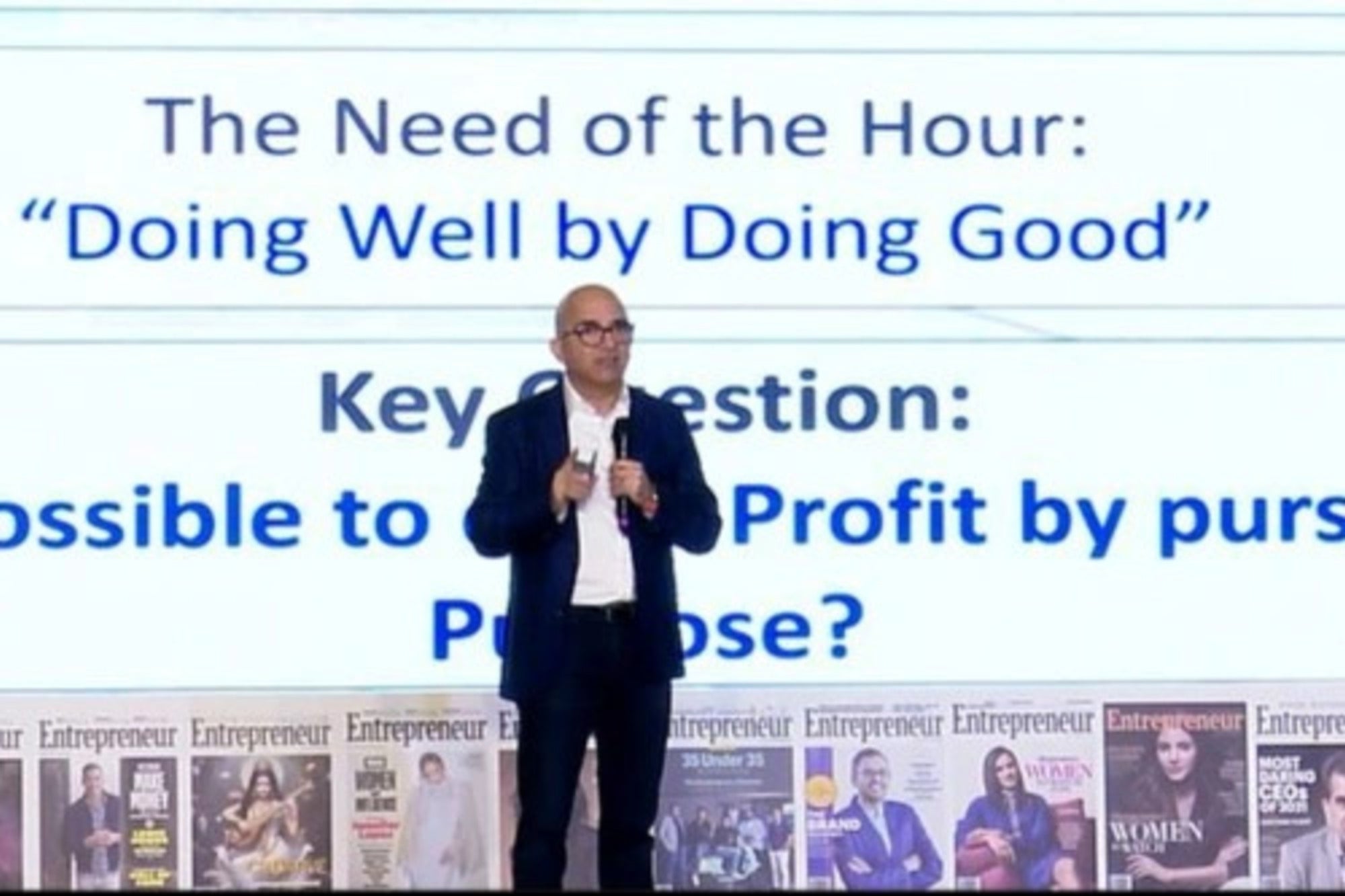SoftBank, Grab Bullish on Indonesia's Digital Infrastructure Grab has announced to invest US$2 billion from SoftBank into Indonesia's digital infrastructure, especially electric vehicle (EV) and healthcare sectors, over a period of five years
Opinions expressed by Entrepreneur contributors are their own.
You're reading Entrepreneur Asia Pacific, an international franchise of Entrepreneur Media.

Southeast Asia's popular superapp, Grab will invest SoftBank Group-backed US$2 billion into Indonesia's digital infrastructure, especially into electric vehicle (EV) and healthcare sectors, over a period of five years. This was decided after the Grab's top brass met SoftBank's chairman and CEO Masayoshi Son on Monday (29 July) in Jakarta.
"Indonesia's technology sector has huge potential. I'm very happy to be investing US$2 billion into the future of Indonesia through Grab," Son told reporters during a media briefing in the capital.
"I'd like to invest more," Son further told the media.
Grab added SoftBank Vision Fund to its portfolio of investors in February this year, after it secured US$1.46 billion investment for its Series H funding round. The additional investment from SoftBank will provide Grab a double treat to aggressively push its superapp goal in Indonesia, while competing with the homegrown ride-hailing company, Go-Jek.
The Singapore-headquartered Grab entered Indonesia with its motorcycle-taxi hailing app in 2015. Now it operates more than 10 consumer services, from booking taxis to ordering food online and facilitating digital payments, in the country. The company claims to have already invested over US$1 billion into its Indonesia business as part of "Grab 4 Indonesia 2020 master plan" launched in 2017 in collaboration with the Indonesian government.
"We are delighted to facilitate this SoftBank investment, as we believe by investing in digitising critical services and infrastructure we hope to accelerate Indonesia's ambition to become the largest digital economy in the region and improve the livelihoods of millions in the country," the statement cited Grab co-founder Anthony Tan as saying.
Sectors Grab and SoftBank Eyeing in Indonesia
Indonesia ranked at fourth position after the US, India, and China, in the run towards becoming a country with the highest number of internet users, according to Mary Meeker's Internet Trends 2019 report released in June. As of 2018, the country had four unicorns: ride-hailing company, Go-Jek; an online travel agency, Traveloka; an online marketplace, Tokopedia; and an e-commerce company, Bukalapak.
SoftBank already holds stake in Tokopedia. The investment company along with Alibaba invested US$ 1.1 billion in Tokopedia as part of the latter's Series G funding round in December last year. Reports suggest that Tokopedia will be investing in two logistics companies using artificial intelligence (AI).
Further, Grab maintains that the investment in the ride-hailing unicorn will give SoftBank an edge to grow its presence in Indonesia. One of the areas Grab and SoftBank seek to create is a next-generation transport network based around EV ecosystem, the statement said. It added that the companies will also collaborate to develop geo-mapping solutions for Indonesia.
Indonesia is touted as Southeast Asia's second largest car production hub. The country is already brimming in action to produce more EVs, after arising investment interest from a number of automotive companies, such as Japan's Toyota Motor Corp and South Korea's Hyundai. Of which, Toyota has already committed to invest US$2 billion in Indonesia over the next five years, according to Reuters citing Indonesia's Industry Minister Airlangga Hartarto.
Indonesian government is already in the process of finalising a new EV policy, as it targets 20 per cent of all cars produced in Indonesia to be electric vehicles by 2025.
Grab has also announced to utilise the Softbank's investment to launch an affordable e-healthcare services in Indonesia in the next three months. The company forayed into the healthcare segment in August last year by announcing a joint venture with China's online-to-offline (O2O) healthcare servicing platform, Ping An Good Doctor. The partnership aims to provide Southeast Asians an access to AI-driven online medical consultations, medicine delivery and appointment bookings.
The company will also be setting up another headquarters in Indonesia that will focus on developing solutions that empower micro-entrepreneurs, such as Grab-Kudo agents. It aims to double the number of micro-entrepreneurs in the country in five years, up from the 5 million created so far, with this additional US$2 billion commitment to Indonesia, the company said.













